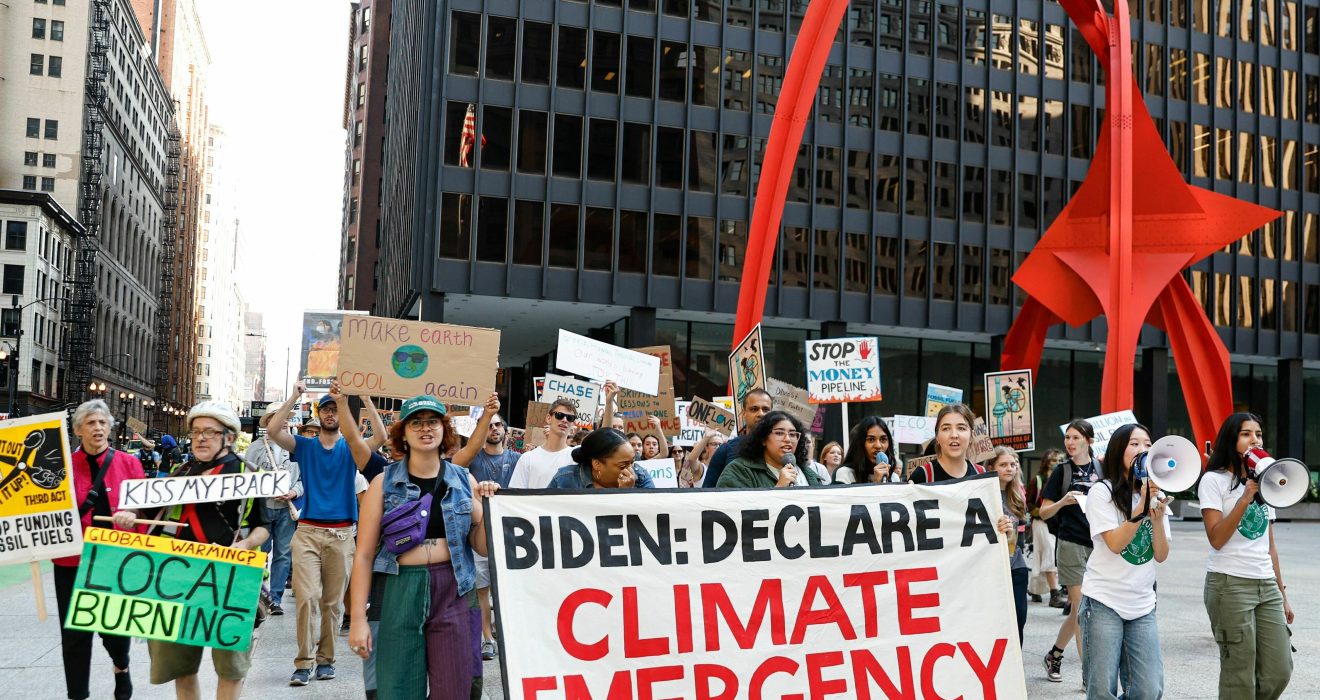As the world grapples with the escalating climate crisis, the 2024 election looms large as a critical opportunity for voters to demand action from their leaders. With record-breaking temperatures and devastating climate impacts becoming increasingly frequent, the urgency of addressing this existential threat has never been clearer. Yet, despite the overwhelming concern among voters – with 56% of Americans expressing worry or alarm about the climate crisis – the media’s coverage of the election has largely sidelined this pressing issue.
This failure to prioritize climate in election coverage is a disservice to the public, who deserve to be informed about the policies and commitments of their prospective leaders in tackling this global challenge. In this pivotal moment, it’s imperative that journalists rise to the occasion, recognizing the climate crisis as a central issue that demands comprehensive and sustained coverage throughout the electoral process. By elevating climate concerns in their reporting, the media can empower voters to make informed decisions that reflect the urgency of addressing the climate emergency.
Climate Crisis Takes Center Stage in 2024 Election Coverage
The press is under scrutiny for sidelining the climate crisis in their coverage of the 2024 election campaign. Despite the urgency of the issue, journalists have largely failed to connect the dots between the pressing climate concerns and the electoral process. This oversight is especially concerning given that 56% of US voters are either “concerned” or “alarmed” about the climate crisis, according to recent polling.
Urgent Need for Climate Action
With last year marked as the hottest on record, scientists are sounding alarm bells, emphasizing the necessity of rapidly phasing out fossil fuels to mitigate the climate crisis. The stakes couldn’t be higher as countries grapple with the imperative to transition away from polluting energy sources while adapting infrastructure and policies to withstand increasingly severe weather events.
Media’s Role in Shaping the Narrative
Despite the gravity of the climate crisis, the media’s coverage of the 2024 campaign has largely sidelined climate-related issues. Climate questions are often treated as afterthoughts in candidate debates and interviews, if they’re addressed at all. When climate change is discussed, it’s often framed simplistically, failing to reflect the scientific consensus on the urgency of action.
Making Climate Central to Election Coverage
There’s a clear need for a shift in the way the media covers elections. Rather than fixating on polling data and campaign strategies, journalists should prioritize substantive issues like the climate crisis. By asking candidates about their plans to address climate change, their ties to the fossil fuel industry, and their solutions for communities impacted by extreme weather, reporters can better inform voters and hold elected officials accountable.
Empowering Journalists to Prioritize Climate Coverage
To address the gap in climate election coverage, initiatives like The Climate Elections project are stepping up to provide resources and guidance for journalists. This project aims to help newsrooms incorporate climate-related topics into their election coverage, highlighting the public’s demand for more information on the climate crisis. By equipping journalists with the tools and knowledge they need to cover climate issues effectively, we can ensure that voters are informed about the critical issues at stake in the 2024 elections.
the 2024 election presents a pivotal moment in addressing the climate crisis. Journalism has a crucial role to play in shaping the narrative and informing the public about the urgent need for action. By prioritizing climate coverage, journalists can help ensure that voters are equipped with the information they need to make informed decisions at the ballot box.
The Imperative of Climate-Centered Election Coverage
In the lead-up to the 2024 election, the imperative to prioritize climate in election coverage has never been more pressing. With communities around the world facing increasingly severe climate impacts, the stakes for this election are undeniably high. Journalists must heed the call to action, recognizing their responsibility to inform the public about the critical importance of addressing the climate crisis. By centering climate in their reporting, journalists can ensure that voters are equipped with the knowledge and insight needed to hold their elected officials accountable for meaningful action on climate change. As we navigate this pivotal moment in history, let us not underestimate the power of journalism to shape the narrative and drive positive change in the fight against the climate emergency.
Conclusion
In conclusion, the 2024 election presents an unparalleled opportunity for journalists to prioritize climate coverage and empower voters to demand decisive action on this existential threat. By amplifying the voices of scientists, activists, and communities affected by climate change, the media can catalyze meaningful discourse and hold candidates accountable for their climate policies. As we navigate the challenges ahead, let us recognize the pivotal role of journalism in shaping public understanding and driving progress towards a sustainable future. Together, we can ensure that the climate crisis remains at the forefront of the political agenda, both in this election and beyond.

